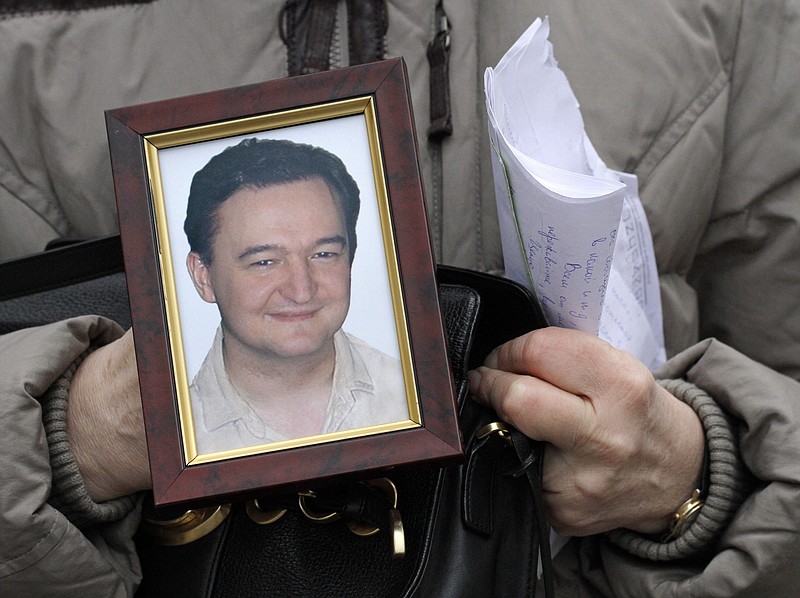WASHINGTON (AP) - A documentary premiering Monday at Washington's Newseum is generating controversy by claiming that a late Russian whistleblower who had inspired a major U.S. human rights law was responsible for the very fraud he had accused Russian officials of perpetrating.
Supporters of the whistleblower, including a U.S.-born financier also targeted in the documentary, denounce the movie as smear campaign and have urged the Newseum not to show it. But the Newseum, a museum dedicated to media freedom, stood by its decision to rent its theater for the screening, saying it is a matter of free speech.
Sergei Magnitsky died in a Moscow prison in 2009 at the age of 37 after accusing Russian officials of stealing $230 million from the Russian government in tax rebates. The Russian presidential council on human rights said he was beaten and denied medical treatment in jail. Magnitsky was a lawyer for William Browder, a British-American investor who made millions in Russia after the Soviet collapse, but then was expelled from Russia in 2005.
Magnitsky's case has become a symbol of human rights abuses and corruption in Russia. In 2012 Congress passed a law in his honor that imposed sanctions on nearly 40 Russian officials deemed implicated in the case and in other rights violations. The sanctions, which Browder actively lobbied for, involve travel bans and asset freezes in U.S. jurisdictions. In return, Russia banned American families from adopting Russian orphans.
But Russian director Andrei Nekrasov disputes the widely accepted narrative in his film. Nekrasov, who has made movies critical of Russian President Vladimir Putin, claims that Magnitsky did not accuse police officers in the tax fraud and that he was not tortured in jail. He also claims that Magnitsky himself was responsible for the fraudulent tax returns. Nekrasov alleges that Browder, who has since been convicted in Russia to nine years in prison in absentsia on charges of tax evasion, invented the Magnitsky story as a public relations stunt.
"He made up the Magnitsky story so that the accusations of the Russian government against him would be regarded as politically motivated," Nekrasov told The Associated Press ahead of the premiere. Nekrasov said he initially set out to document Browder's version on the events in his film, but then discovered evidence that changed his mind.
Browder vehemently denies Nekrasov's allegations and says the film is an attempt by the Russian government to get the Magnitsky Act repealed. Browder has demonstrated evidence of Magnitsky's mistreatment in jail, including photos of multiple bruises on his body and a prison report saying that a rubber baton was used against him.
Browder says Magnitsky was targeted precisely because he and his colleagues blew the whistle on the tax fraud by police officials, who were later involved in investigating him. Several countries, including the United States and Switzerland, have opened money laundering investigations and have frozen assets in connection with the fraud.
"It's part of a Kremlin-sponsored smear campaign to try discredit the Magnitsky Act and to ultimately repeal the Magnitsky sanctions," Browder told the AP. "This movie is spitting on the grave of a Russian hero who stood up against Russian corruption and gave his life for his principles, and it's a terrible insult to his family who are still deeply traumatized and destroyed by what the Russian government did to their husband and their son."
Russian Embassy spokesman Yuri Melnik said that statements that the Russian government was trying to influence U.S. legislation were "completely groundless."
Magnitsky's mother, Natalia, 64, said the movie was an insult to the memory of her son. "The people who are guilty of Sergei's death are trying to defend and justify themselves," she said.
